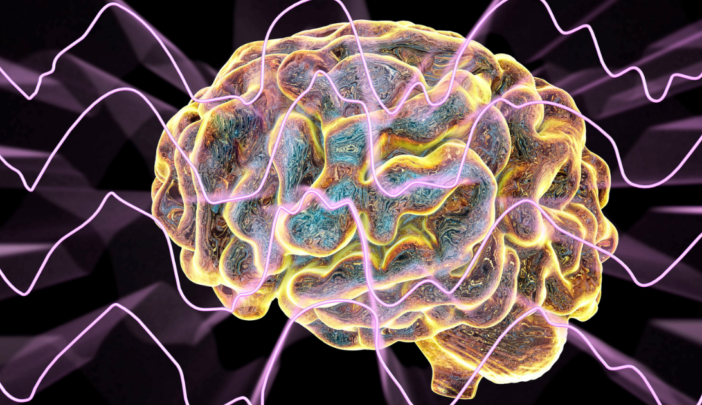
Major Depressive Disorder (MDD) is a serious mental health condition that can significantly interfere with an individual’s daily life, employment, and overall well-being. But is Major Depressive Disorder a disability? In the context of Social Security Disability Insurance (SSDI) and Supplemental Security Income (SSI), the answer is: it can be.
This guide breaks down everything you need to know about how the Social Security Administration (SSA) evaluates claims involving MDD in 2025, how to apply, what evidence you need, and how a local disability lawyer can help.
What Is Major Depressive Disorder?
Major Depressive Disorder is a psychiatric condition characterized by persistent feelings of sadness, hopelessness, and a lack of interest or pleasure in activities. Symptoms may also include:
- Difficulty concentrating
- Fatigue or loss of energy
- Sleep disturbances (either insomnia or hypersomnia)
- Changes in appetite or weight
- Feelings of worthlessness or guilt
- Suicidal thoughts or behavior
These symptoms must last for at least two weeks and represent a change from previous functioning to meet clinical criteria for MDD. In many cases, MDD is chronic and requires long-term treatment.
Is Major Depressive Disorder a Disability Under Social Security Rules?
Yes, Major Depressive Disorder can qualify as a disability under SSA rules. The SSA recognizes MDD under Listing 12.04 of its “Blue Book” of impairments, which covers depressive, bipolar, and related disorders.
To be considered a disability, MDD must be severe enough to:
- Prevent you from engaging in Substantial Gainful Activity (SGA)
- Last or be expected to last at least 12 months or result in death
SSA’s Listing 12.04 Requirements
To qualify for disability benefits under Listing 12.04, you must provide medical documentation showing:
1. At least five of the following symptoms:
- Depressed mood
- Diminished interest or pleasure in most activities
- Appetite disturbance with change in weight
- Sleep disturbance
- Observable psychomotor agitation or retardation
- Decreased energy
- Feelings of guilt or worthlessness
- Difficulty concentrating or thinking
- Suicidal thoughts
AND
2. Extreme limitation of one, or marked limitation of two, of the following areas:
- Understanding, remembering, or applying information
- Interacting with others
- Concentrating, persisting, or maintaining pace
- Adapting or managing oneself
Alternatively, you may qualify under paragraph C criteria, which requires:
- A medically documented history of MDD over at least two years
- Evidence of ongoing treatment
- Minimal capacity to adapt to changes or demands outside a highly supportive living arrangement
How to Apply for Disability Benefits with MDD
Applying for SSDI or SSI with Major Depressive Disorder involves several key steps:
1. Gather Medical Evidence: Collect records from psychiatrists, therapists, hospital visits, medications, and treatment plans. SSA places strong emphasis on longitudinal treatment records.
2. Submit Your Application: You can apply online, in person, or over the phone. Be sure to clearly explain how your MDD symptoms affect your ability to work and perform daily tasks.
3. Respond to SSA Requests: SSA may ask for additional forms, interviews, or psychological evaluations.
4. Appeal if Denied: Most claims are denied initially. You have the right to appeal through a reconsideration, hearing, and even a federal court review.
Can You Work and Receive Disability for MDD?
If you’re applying for SSDI, you generally cannot earn more than the monthly SGA threshold. However, some applicants may qualify for a trial work period or SSI benefits with part-time, limited income.
In some cases, SSA will consider Residual Functional Capacity (RFC) — your ability to perform work-related tasks — to determine eligibility even if you don’t meet a Blue Book listing.
Challenges in Winning an MDD Disability Case
While Major Depressive Disorder is a recognized condition, proving its disabling nature can be difficult due to:
- Subjectivity of symptoms
- Inconsistent treatment history
- Gaps in medical documentation
- Stigma around mental illness
This is why it’s essential to:
- Maintain consistent treatment with mental health professionals
- Follow prescribed medications and therapy
- Provide detailed documentation of functional limitations
- Obtain written statements from healthcare providers
How a Disability Lawyer Can Help
A Social Security Disability lawyer can significantly improve your chances of winning your claim by:
- Ensuring your application includes strong medical evidence
- Helping you obtain detailed RFC assessments from providers
- Preparing you for SSA interviews or hearings
- Representing you in appeals if your claim is denied
At Collins Price, we have years of experience helping individuals with MDD and other mental health conditions apply for and secure disability benefits.
FAQs: Major Depressive Disorder and Disability
Q: Can I qualify for disability with just depression?
A: Yes, if your symptoms are severe and well-documented, you may qualify even if depression is your only condition.
Q: What if I also have anxiety or PTSD?
A: SSA will consider all impairments together when evaluating your ability to work.
Q: What benefits can I receive if approved?
A: SSDI provides monthly cash payments and Medicare eligibility. SSI provides income support and Medicaid.
Q: How long does it take to get approved?
A: The timeline varies but typically takes 3-6 months for an initial decision. Appeals can take longer.
Conclusion: Is Major Depressive Disorder a Disability?
Yes, Major Depressive Disorder can absolutely qualify as a disability under SSA guidelines if the condition severely limits your ability to function and work. The key to a successful claim lies in presenting strong medical documentation, consistent treatment records, and functional evidence of your limitations.
If you or a loved one is struggling with MDD and wondering whether disability benefits may be an option, contact Collins Price today for a free consultation on your claim. There’s no fee for the consultation and no fee for our services unless we win your claim.



